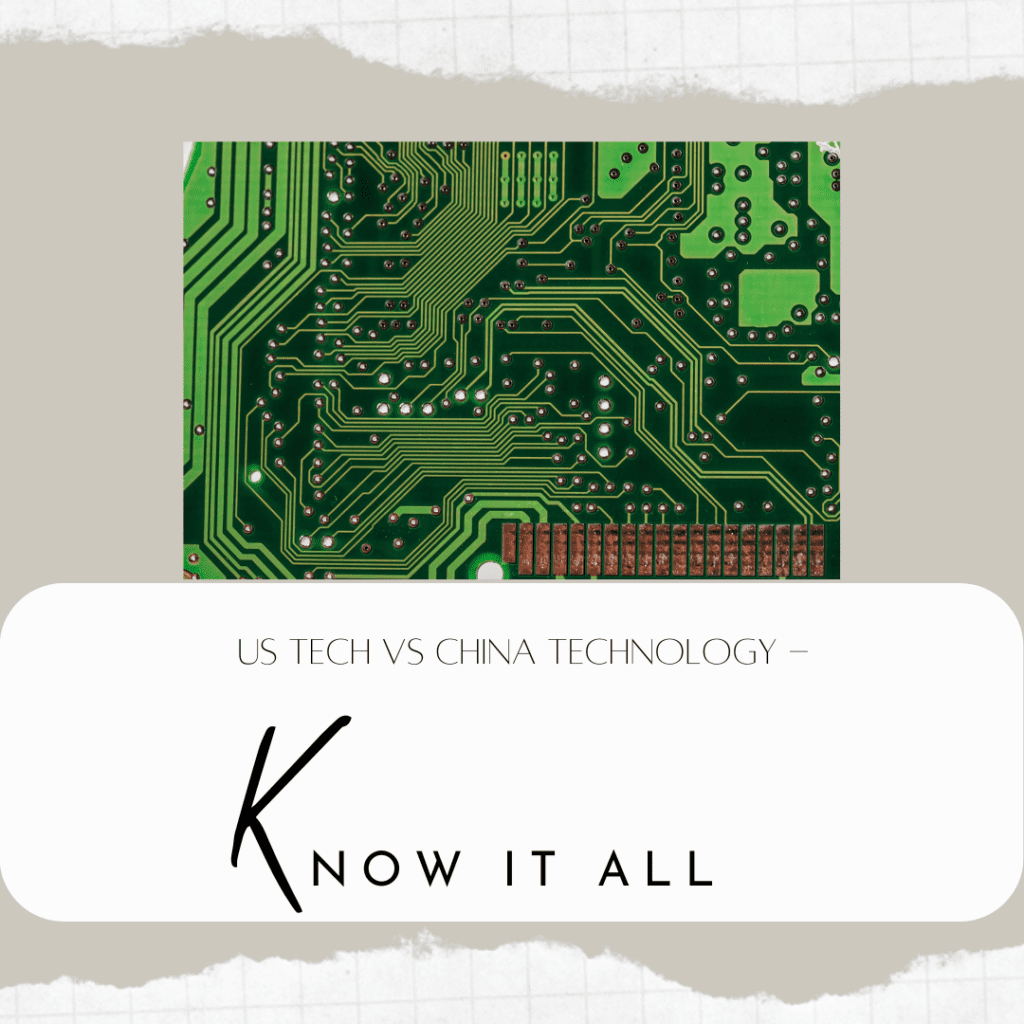US Tech Vs China Technology

In one of the toughest actions President Joe Biden has taken against China, the US has imposed sweeping export controls that will severely impede Chinese companies’ efforts to develop cutting-edge technologies with military applications.
The Commerce Department announced new restrictions on Friday that will make it extremely difficult for Chinese companies to obtain or manufacture advanced computer chips, slowing their progress in artificial intelligence.
The measures are also intended to make it much more difficult for China to develop supercomputers with military applications ranging from nuclear weapon simulation to hypersonic weapon development.
US-China chip war
The US is rapidly ramping up efforts to stymie China’s progress in the semiconductor industry, which is critical for everything from smartphones to military weapons.
Washington announced some of the most stringent export controls yet in October, requiring licenses for companies exporting chips to China using US tools or software, regardless of where they are manufactured.
The measures imposed by Washington also bar US citizens and green card holders from working for certain Chinese chip companies. Green card holders are permanent residents of the United States who have the right to work in the country.
It is severing a vital pipeline of American talent to China, which will have an impact on the development of high-end semiconductors.
US Tech – How the technology dispute is unfolding
Supercomputers, artificial intelligence, and military hardware all rely on advanced chips.
The United States claims that China’s use of the technology endangers its own national security.
The rules were announced by Alan Estevez, undersecretary of the US Commerce Department, who stated that his intention was to ensure that the US was doing everything possible to prevent “sensitive technologies with military applications” from being acquired by China.
“The threat environment is constantly changing, and we are updating our policies today to ensure we are meeting the challenges,” he said.
Meanwhile, China has called the controls “technology terrorism”.
Chip-producing countries in Asia, such as Taiwan, Singapore, and South Korea, have expressed concern about how this bitter battle is affecting the global supply chain.
More Chinese companies have been added to the ‘entity list.’
The Biden administration has added 36 more Chinese companies to Washington’s “entity list,” including major chipmaker YMTC.
It means that American companies will need government permission to sell certain technologies to them, which will be difficult to obtain.
The US restrictions have far-reaching consequences. Because of US and UK controls, UK-based computer chip designer Arm confirmed last week that it was not selling its most advanced designs to Chinese firms, including tech giant Alibaba.
Arm stated that it is “dedicated to complying with all applicable export laws and regulations in the jurisdictions in which it operates.”
US Tech – China complains to WTO
China has complained to the World Trade Organization (WTO) about the United States’ export controls on semiconductors and other related technology.
According to the complaint, the US has restricted the export of approximately 2,800 Chinese goods, but only 1,800 of these were permitted under international trade rules.
The World Trade Organization (WTO) ruled earlier this month that US tariffs on steel and aluminum imposed by former President Donald Trump violated global trade rules.
Tariffs apply to two-thirds of all Chinese exports to the United States.
The US said it “strongly rejects” the ruling and has no plans to repeal the sanctions.
The US controls are not limited to chipmakers. They also have an impact on chip manufacturers.
Large corporations in Japan or the Netherlands may miss out on a large and profitable buyer of their high-end machines.
Peter Wennink, CEO of Dutch chip equipment maker ASML Holding NV, questioned whether the Netherlands should limit exports to China.
Mr Wennink stated that, in response to US pressure, the Dutch government has already prohibited ASML from selling its most advanced lithography machines to China since 2019.
“Perhaps [the US believes] we should come to the table, but ASML has already made a sacrifice,” he told Dutch media.
US Tech – What comes next
Chipmakers are also under pressure to produce more sophisticated chips in order to support new products.
For example, Apple’s new laptop will include 3 nanometre chips from industry leader Taiwan Semiconductor Manufacturing Company. To put that into perspective, a human hair is approximately 50,000 to 100,000 nanometres long.
Analysts believe that US controls could push China further behind other chip-producing countries, despite Beijing’s open declaration that it wants to prioritize semiconductor manufacturing and become a semiconductor superpower.
Even though the latest measures are not as severe as those announced in October, the US has already significantly isolated China’s chip industry.
Source: BBC